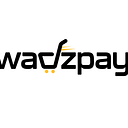How Will Cryptocurrencies Help the Underbanked and Unbanked?
According to a World Bank study, there are 1.7 billion unbanked/underbanked adults globally, yet two-thirds of them own a mobile phone that could help them access financial services. Digital technology could take advantage of existing cash transactions to bring people into the financial system. More than 200 million unbanked/underbanked adults who work in the private sector are paid in cash only. More than 50% of those reside in Asia.
The World Bank also highlights several reasons why many people prefer to remain unbanked/underbanked, such as their lack of sufficient money to open a bank account, costs of maintenance, distance barriers, distrust in the current financial system, and documentation requirements. Thus, addressing some of these hurdles is key to ameliorate financial inclusion for many adults.
Cryptocurrency is believed to be the perfect way to bring financial services to everyone, regardless of location or income. For those without access to good local banks, cryptocurrencies offer a solution.
In past years, digital currencies and cryptocurrencies were seen as merely another way to transact on the Internet. However, as they mature over time, cryptocurrencies are seeing the creation of more decentralized financial products (DeFi) — cryptocurrency loans, the ability to pay bills with ‘crypto’, and more.
Not only do these products allow people to participate in the transactions happening on the net, they also make everything more efficient by bypassing systems and tedious processes imposed by traditional banking systems. Costs are significantly lower for holding or managing crypto (if there are any at all). In addition, transactions have the potential to be much quicker (no need for a lengthy approval process) — opening up new opportunities and access to more financial services.
For many people in third-world countries, proving their identity may pose a big problem. With blockchain, individuals can get a digital identity for use in their banking. Making remittances easy and efficient, blockchain allows low-income individuals in different countries to save and lend without ID.
There is no doubt that cryptocurrencies have the power to fight against financial inequality and bring financial services to those in need. They can provide a paradigm shift for the unbanked population and will also impact on politics, finance, technology, as well as economy.
Driving financial inclusion whilst enabling broader acceptance has always been our mission at WadzPay and we believe that cryptocurrencies will play a crucial part in achieving that. WadzPay is developing a digital payment platform taking advantage of innovations in technology such as Blockchain and AI to provide cost-effective and tech-enabled solutions that mutually benefit all stakeholders involved in the transaction lifecycle with more control and visibility.
